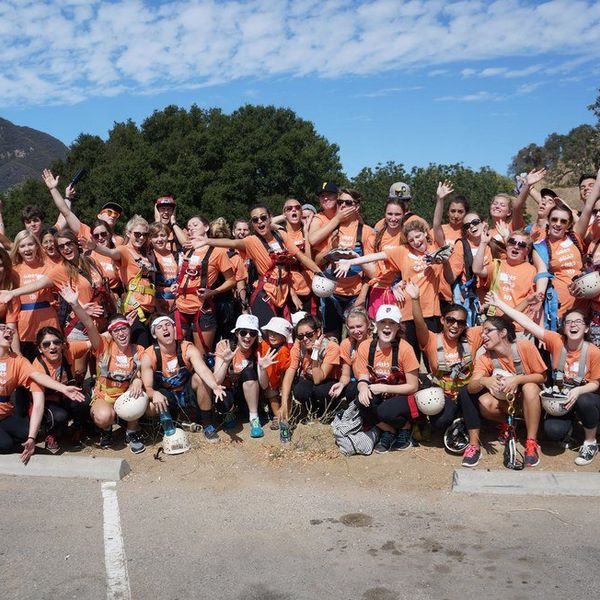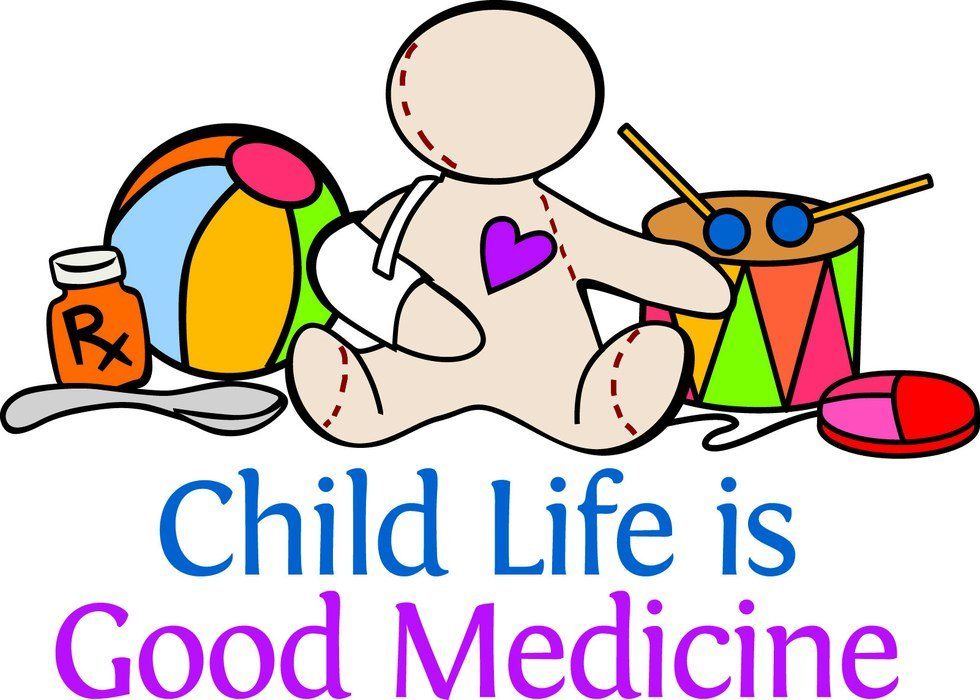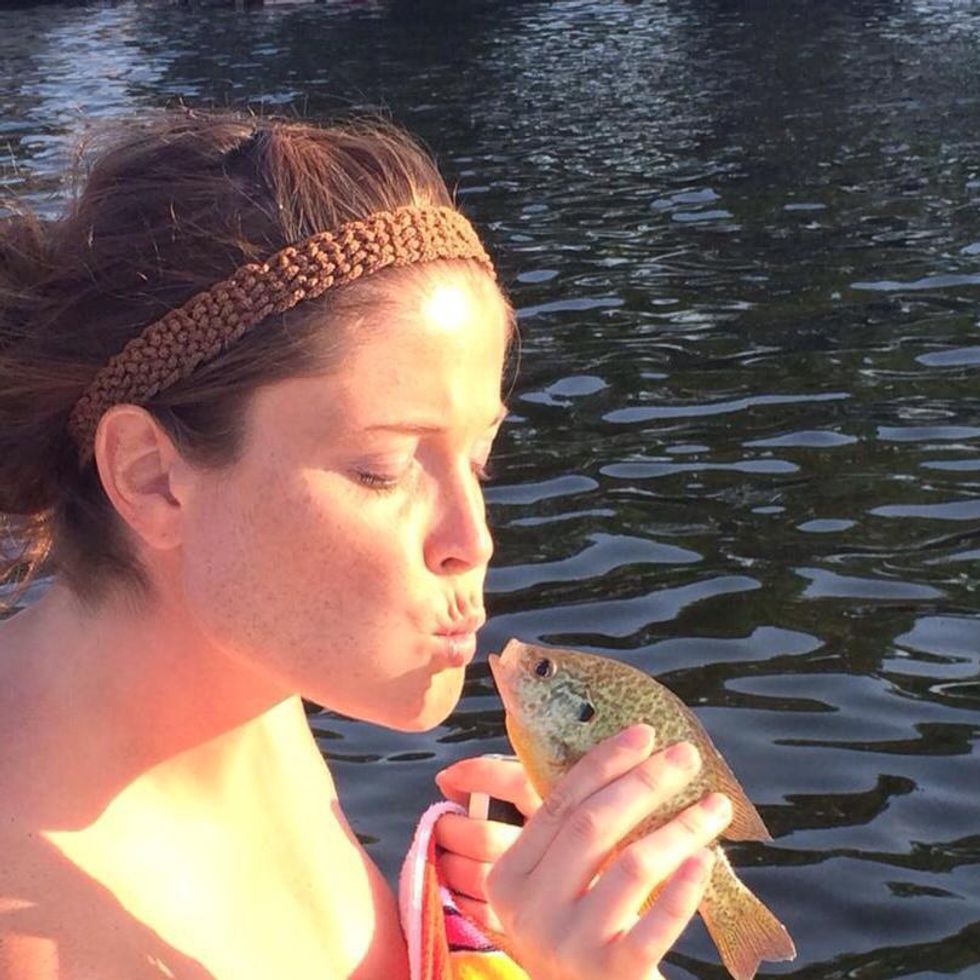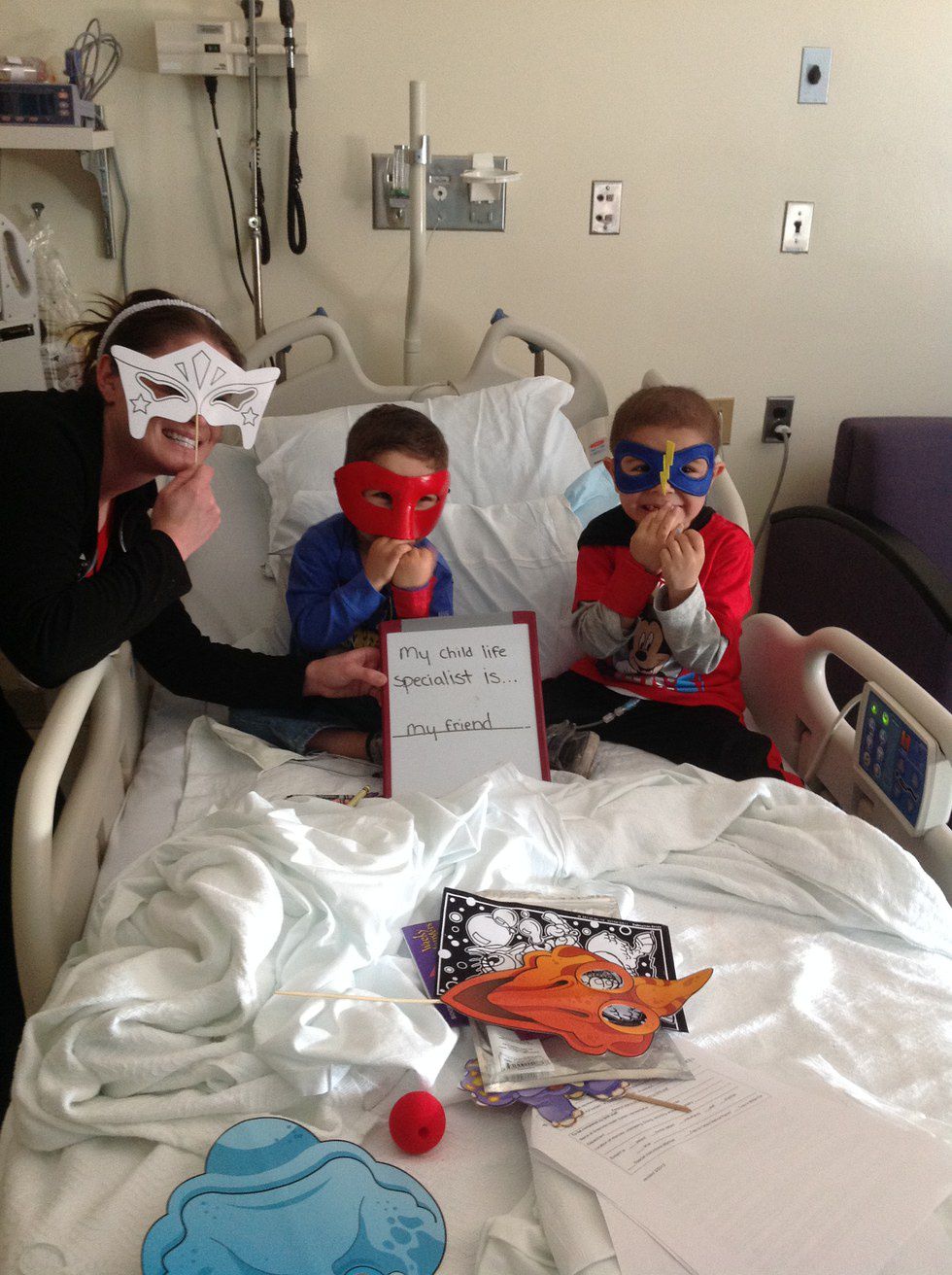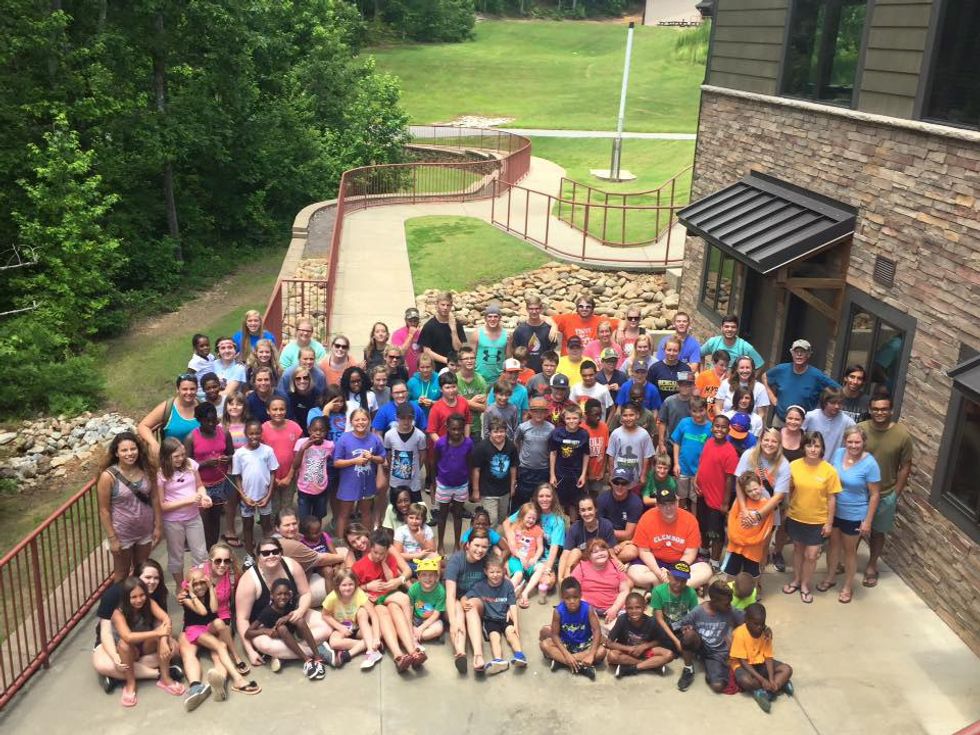Through these Child Life Chronicles, I plan on opening my readers' eyes to a career not many have heard of: certified child life specialist, or CCLS. A child life specialist is someone who works in a medical setting to help the children admitted to the hospital cope with the challenges of hospitalization, illness, and disability. I have been conducting interviews with some of the Child Life Staff from Greenville Hospital System.
My interview this week was with Lyndsey Hoffman, the CCLS in the outpatient Hematology/Oncology clinic (Bi-Lo Charities Cancer Center) and was also the Camp Courage Director this summer. I volunteered this summer alongside Lyndsey at Camp Courage, and I can honestly say she was amazing to work with; I could easily tell how much she loves her job. I learned a thing or two from her interview, I hope you do too!
Personal Profile
Favorite selfie?
If you could have any superpower what would it be? Flying.
What is your favorite sports team? Green Bay Packers.
Child Life Questions
1. How long have you been a CCLS? Have you always worked at GHS or did you start somewhere else?
I have been a child life specialist for four years and have been at GHS the entire time!
2. Did you always want to have a career in Child Life or did you change your mind along the way to become a CCLS?
I studied psychology and social work in undergrad and had no idea what I wanted to do with the degrees. I was working as an ABA therapist with children with Autism at the time and thought I may want to pursue a master’s degree in special education. I spent a year in a high school teaching algebra to students with learning disabilities and found out that the classroom setting was not ideal for me. An ABA client of mine had to have a procedure done at a children’s hospital in Wisconsin, and his mother came back from the procedure and told me all about the child life specialist they had met. She told me about how she prepared her child for surgery and allowed him to decorate a mask. She thought the career would be a great choice for me so I looked into it further and applied for master’s programs. I ended up completing a master’s program at the University of La Verne and was hired at GHS shortly after!
3. What is your favorite part about working in the Hem/Onc outpatient unit?
I think the part I love the most about working with the hem/onc population is the opportunity to really build relationships with the patients we see and their families. It is truly a wonderful blessing to be able to walk with these families through their journeys, and I feel privileged that they let us do so. I also love the staff I work with. Everyone on this staff brings something unique to the team and offers something valuable to the families we care for. We have a lot of fun in the clinic, but we also take care of each other when it is necessary.
4. Do you have any advice for students who are planning on becoming a CCLS at some point in their lives?
My advice for students interested in pursuing a career in child life is to take as many opportunities for new experiences as possible! Volunteer! Listen. Really listen. So often we get caught up thinking about what we plan to say next. It does not matter what we say next if you have not heard what has been said to us. Ask questions. If you are not sure, it is okay to say so, but then find out the answer! Really get to know your own strengths and weaknesses and likes and dislikes. Knowing yourself will help you decide where to work and what your child life style will be. Have fun along the way! You will reach your destination, learn a lot and have as much fun as possible while you’re working to get there!
Camp Courage Questions
1. This was your first year directing Camp Courage; overall how do you feel you did with that job?
This was my first year as the Camp Courage director, and it was a wonderful learning experience. I had so much fun planning and implementing the activities at both main camp and teen camp. This opportunity also allowed me to meet a lot of amazing people. I think that overall both camps went well this year. I have received great feedback from campers, parents, counselors, and staff. Looking back, there were a couple of things I probably would have done differently, but overall I think the camps were successful.
2. For the readers who have never heard of Camp Courage, could you explain exactly what the mission of Camp Courage is, who is allowed to come, and what a typical day at camp is like?
This mission of Camp Courage is to provide support, recreational, and educational programs for children, adolescents, and young adults living with cancer or blood disorders, which allows them to share similar experiences with peers while participating in activities that promote age-appropriate coping. The patients that are seen at the Bi-Lo Charities Children’s Cancer Center that are ages 6-18 are invited to come to these camps. We bring the medical staff to camp so that all of our patients are given the opportunity to participate in the camp experience and do activities they might not otherwise be able to do. Some of these activities include canoeing, yoga, arts and crafts, the climbing tower, zip line, swing, and swimming. We also do special events such as a dance, a Camp Courage talent show, a trip to a water park, and some teen outings.
3. What were the best and worst moments for you directing camp?
I cannot really think of a worst moment at camp. I had no idea if anything would go as planned, and that made me a little nervous at first, but I cannot really think of a “worst” moment. I think the best moment at main camp for me was at the talent show. Everyone had finished performing their talents, and all of the campers got on stage and sang the Fight Song. It was amazing to see the whole group come together spontaneously and sing and dance to this song. I think my favorite moments at teen camp were when the teens were all working together to solve a mystery or complete a mission for their team. They all cheered for one another, and it was really fun to experience the friendly competition.
4. In your words, why is camp courage so important to the campers?
Camp Courage is so important for our patients, because it allows them to have a week of normalization. They are able to have a typical camp experience. They spend the week with other patients who have been through experiences similar to their own, and they build friendships. The campers push themselves outside of their comfort zones to participate in new activities and really grow throughout this week. It is amazing to watch the new relationships form and to see how much each camper grows in just a week!
5. Can people get involved with Camp Courage? If so, how?
People can definitely get involved in Camp Courage. All of our campers attend Camp Courage for free and it costs over $500.00 to send a child to camp for a week. The majority of our camp needs are met through donations, so if people do not wish to be directly involved, they can donate to Camp Courage. We are also always in need of camp counselors (20 years of age and older) and leaders in training (16-19 year olds). We also have individuals and groups that donate their time/talent to camp facilitating activities!


